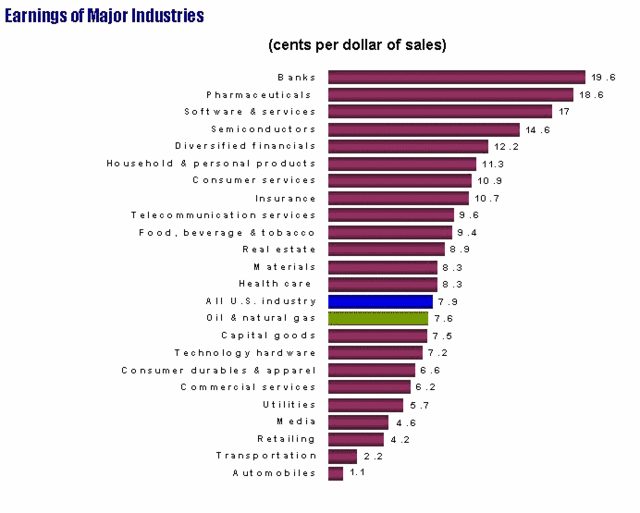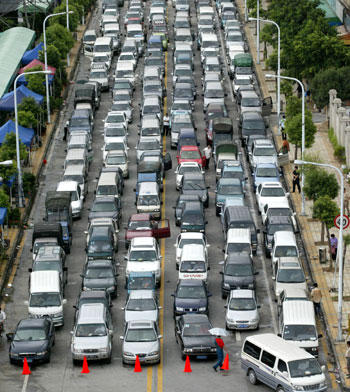I won't go too much into the details of the recent Vioxx jury verdict. Professor Bainbridge has a complete roundup which is worth reading, and Reason had an analysis of the merits of the case a while back. Though its not really the point of this post, I can't resist a few snippets:
Jurors who voted against Merck said much of the science sailed right over their
heads. "Whenever Merck was up there, it was like wah, wah, wah," said juror John
Ostrom, imitating the sounds Charlie Brown's teacher makes in the television
cartoon. "We didn't know what the heck they were talking about."
One juror considered the fact that the CEO, whose company faces thousands of law suits, didn't show up as an admission of guilt:
... [juror] Ostrom, 49, who has a business remodeling homes, was also disturbed
that former Merck Chief Executive Raymond Gilmartin and another top Merck
official gave videotaped testimony but weren't in the courtroom. "The big guys
didn't show up," said Mr. Ostrom. "That didn't sit well with me. Most definitely
an admission of guilt."
And of course there is this now famous gem:
One juror, Ms. Blas, had written in her questionnaire that she
loves the Oprah Winfrey show and tapes it. "This jury believes they're going to
get on Oprah," Ms. Blue told Mr. Lanier. "They only get on Oprah if they vote
for the plaintiff."
Read the Bainbridge post, it has much more.
Anyway, the point of this post is that this verdict represents a very dangerous assault on individual choice. Recognize that there are many, many activities in life where individuals are presented with the following choice:
If I choose to do X, my life will be improved in some way but I may statiscally increase my chance of an early death.
You may react at first to say that "I would never risk death to improve my life", but likely you make this choice every day. For example, if you drive a car, you are certainly increasing your chance of early death via a auto accident, but you accept this risk because driving allows you to get so much more done in your life (vs. walking). If you ride a bike, swim, snow ski, roller blade, etc. you are making this choice. Heck, everyone on the California coast is playing Russian Roulette with an earthquake in exchange for a great climate, beautiful scenery, and plentiful jobs.
The vast majority of drugs and medical therapies carry this same value proposition: A drug will likely improve or extend your life in some way but carries a statistical chance of inducing a side effect that is worse than the original problem, up to and including death. The problem is that we have structured a liability system in this country such that the few people who evince the side effects can claim more money in damages than the drug was worth to all the people it helped. For example, if a drug helps 999 people, but kills the thousandth, and that thousandth person's family is awarded $253 million in damages (as in this case), the drug is never going to be put on the market again. Even if the next 1000 people sign a paper saying we are willing to take the one-in-a-thousand risk to relieve the pain that is ruining our lives, they still are not going to get the drug because the drug companies know that some Oprah-loving jury will buy the argument that they did not understand the risk they were taking and award the next death another quarter of a billion dollars.
This exact same effect nearly killed the vaccination industry. In the end, Congress had to pass legislation immunizing (ha ha) vaccine makers from lawsuits when known 1-in-10,000 side effects occur. While I am not a big fan of the FDA, if it is going to exist and put drugs through 20 years of tests and a forest full of paperwork to get approved, I think that approval process should confer some sort of litigation immunity.
By the way, have you noticed the odd irony here? Robert Ernst (the gentleman who died in the Vioxx case) is assumed, both by the FDA and the litigation system, to be unable to make informed decisions about risk and his own health. But a jury of 12 random people who never experienced his pain can make such decisions for him? And us?
Richard Epstein said it better than me, in the WSJ but I will like to Reason which is free:
I would like to send my message to [plaintiff's lawyer Mark] Lanier and
those indignant jurors. It's not from an irate tort professor, but from
a scared citizen who is steamed that those "good people" have imperiled
his own health and that of his family and friends. None of you have
ever done a single blessed thing to help relieve anybody's pain and
suffering. Just do the math to grasp the harm that you've done.
Right now there are over 4,000 law suits against Merck for Vioxx.
If each clocks in at $25 million, then your verdict is that the social
harm from Vioxx exceeds $100 billion, before thousands more join in the
treasure hunt. Pfizer's Celebrex and Bextra could easily be next.
Understand that no future drug will be free of adverse side effects,
nor reach market, without the tough calls that Merck had to make with
Vioxx. Your implicit verdict is to shut down the entire quest for new
medical therapies. Your verdict says you think that the American public
is really better off with just hot-water bottles and leftover aspirin
tablets.
Ah, you will say, but we're only after Vioxx, and not those good
drugs. Sorry, the investment community won't take you at your word. It
realizes that any new drug which treats common chronic conditions can
generate the same ruinous financial losses as Vioxx, because the flimsy
evidence on causation and malice you cobbled together in the Ernst case
can be ginned up in any other. Clever lawyers like Mr. Lanier will be
able to ambush enough large corporations in small, dusty towns where
they will stand the same chance of survival that Custer had at Little
Big Horn. Investors can multiply: They won't bet hundreds of millions
of dollars in new therapies on the off-chance of being proved wrong.
They know they'll go broke if they win 90% of the time.
Your appalling carnage cries out for prompt action. Much as I
disapprove of how the FDA does business, we must enact this hard-edged
no-nonsense legal rule: no drug that makes it through the FDA gauntlet
can be attacked for bad warnings or deficient design.

